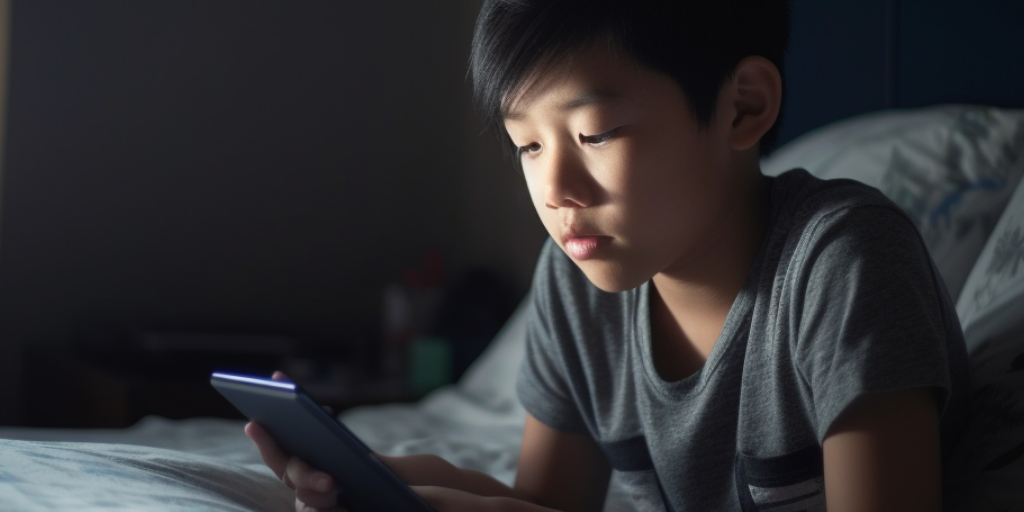
The BrightCanary Breakdown series distills research about kids, the internet, and social media into essential takeaways.
Suicide is the second-leading cause of death for young people. In 2022, Oregon Health & Science University researchers found a startling fivefold increase in suicide rates among 10- to 12-year-olds over the past decade. Adolescence can be an especially difficult time because kids are going through so many changes and feeling pressure to fit in socially.
But how does technology (more specifically, screen time) affect suicidal behavior — especially for tweens?
Researchers at several institutions — including UCLA, USC, John Hopkins University, University of Texas, and the University of the Witwatersrand in Johannesburg, South Africa — wanted to find out. Over two years, they followed 11,633 U.S. children who reported an average of 4 hours per day of total screen time, and published their results in an April 2023 report titled “Screen time and suicidal behaviors among U.S. children 9–11 years old.”
Studies to date have shown that spending too much time looking at screens can have a bad effect on mental health — but there are some problems with them. Most of the studies only look at one point in time, focus on adults or adolescents 13 and over, and don't all agree on what the results mean.
Some studies find that there's not much of a connection between using technology and feeling bad. Others find there is a connection, especially if someone spends a lot of time on screens and feels depressed or thinks about hurting themselves.
There haven't been many studies that look at different types of screen time and how they relate to suicidal behavior in a large population of young people long-termusing official criteria for suicidal behavior. And there have been very few studies focused on tweens.
Excessive screen time has a small impact on suicidal behavior, scaling with usage:
Each additional hour of texting, video chatting, watching videos, and playing video games was associated with higher odds of suicidal behaviors, compared to other types of screens.
Interestingly, social media (such as TikTok and Instagram) was not found to have a higher risk, but it was also not widely used by tweens. Researchers speculate this may be different among teens and adults.
The sample was split almost evenly between boys and girls, and 47.8% were non-White.
Researchers still don’t know how and why screen time experiences may influence suicidal behavior, although the researchers have several theories.
Based on the results of this study, you don’t have to ban your kids from screens. Technology provides kids with a range of social, emotional, and practical benefits. There are several studies that find kids benefit from playing video games, for example, such as improvement in cognitive performance and reading skills. Texting with friends can play a role in developing healthy social skills, and YouTube offers kids videos that allow your kids to explore their passions.
But too much screen time of any sort isn’t good for anyone, and all parents should institute some limits on screen time for their kids — you can find more advice from experts on that here. And if your child is struggling with depression or suicidal thoughts, talk to a professional. You may also want to limit their screen time even further, and help them find offline outlets for their interests. After all, as enticing as screens may be, learning how to step away from phones and tablets is an important part of learning how to use technology responsibly.